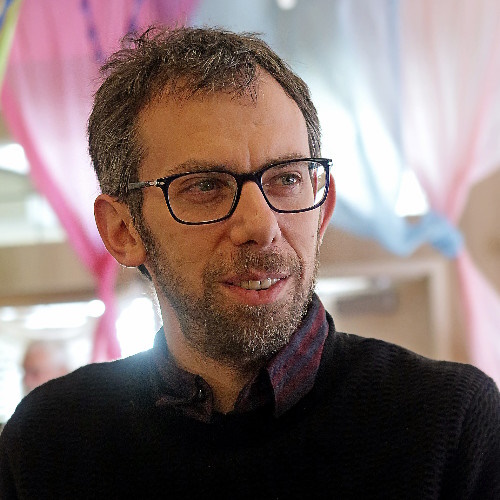Dr. David I. Spivak
David I. Spivak, Ph.D. is the Secretary of the Board at the Topos Institute and on the Topos staff as Senior Scientist and Institute Fellow, following an appointment as founding Chief Scientist.
He has worked on applications of Category Theory, particularly Ologs and Operadic Compositionality of Dynamical Systems. Ologs were introduced in 2012 by David and Robert Kent. Read An Operadic Approach to Compositionality.
His current research project is Functorial Dynamics and Interaction. David is using polynomial functors to model dynamical systems, decision processes, data migration, and more. A book on the subject is in preparation. Read more about it on GitHub, where you can read Idris code on the subject.
David is also working on a research project Structure and Dynamics of Working Language. He is using polynomial functors to account for how language works, in the sense of physics.
David developed a human-readable categorical system of knowledge representation called ologs. These were applied, in a series of collaborations with the materials scientist Markus Buehler, to different problems in materials science. Ologs have been also used by researchers at NIST. The goal of ologs, and David’s book, was to show that category theory can be made relatively easy and thus be understood by a wider audience.
Piet Hut endorsed the book saying, “This is the first, and so far the only, book to make category theory accessible to non-mathematicians.” Read Ologs: A Categorical Framework for Knowledge Representation, Researchers link patterns seen in spider silk, melodies, The music of the silks, and A new molecular design approach.
David and Brendan Fong wrote a book that summarizes the developments in applied category theory for a wide audience and started a nonprofit applied category theory research institute called Topos Institute.
They coauthored the introductory texts on category theory and its applications, Category Theory for the Sciences and An Invitation to Applied Category Theory. Read Modeling and Analysis of Indian Carnatic Music Using Category Theory.
David has also studied Dynamical Systems and Operads. Read Nesting of dynamical systems and mode-dependent networks, Matriarch: A Python Library for Materials Architecture, and Pixel matrices: An elementary technique for solving nonlinear systems.
David earned his Ph.D. in Mathematics from UC Berkeley in 2007 under the supervision of Peter Teichner and Jacob Lurie. His thesis was on derived manifolds titled Quasi-Smooth Derived Manifolds. He earned his Bachelor’s Degree of Science in Mathematics from the University of Maryland in 2000, where he was also a Strauss Teaching Assistant in the Department of Mathematics.
David worked as a postdoc at the University of Oregon from 2007 to 2010, where he was Paul Olum Visiting Assistant Professor in the Department of Mathematics. He was also a Guest Instructor at the Department of Computer and Information Sciences in 2008.
Between 2010 and 2013, David was Postdoctoral Associate in the Department of Mathematics at the Massachusetts Institute of Technology. From 2013 until 2020, he was a Research Scientist there and from 2019 to 2022, a Research Affiliate at the Laboratory for Information and Decision systems (LIDS).
In 2016, David cofounded and became the Chief Scientific Officer at Conexus AI. Conexus AI automates Data Engineering for fast and reliable Data Integration. They have invented a new class of data management technology that increases critical infrastructure data science speed by 100.
Since his Ph.D. from UC Berkeley in 2007, David has worked to bring category-theoretic ideas into science, technology, and society, through novel mathematical research and collaboration with scientists from disciplines including Materials Science, Chemistry, Robotics, Aeronautics, and Computing. His mission at Topos is to help develop the ability of people, organizations, and societies.
David is the Editor of the Diamond Open Access journal, Compositionality. He also published Temporal Type Theory, which describes a new approach, developed by David, for proving properties about the behaviors of systems using temporal logic.
Watch Berkeley Seminar: David Spivak: The 2-category of categories, controls, and flows, David Spivak on Applied Category Theory and Large Language Models, and All Concepts are Cat#.
Watch David Spivak: Pioneering Math for Understanding Reality | AGI-24 Keynote Preview, where he was invited Speaker at the AGI-24 Conference.
Visit his Wikipedia page, Homepage, LinkedIn profile, Mathematics Genealogy Project, and GitHub page. Follow him on Google Scholar, dblp, and X.
